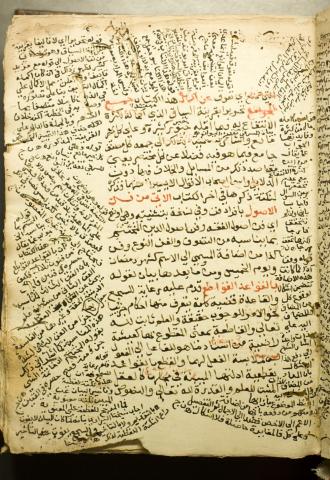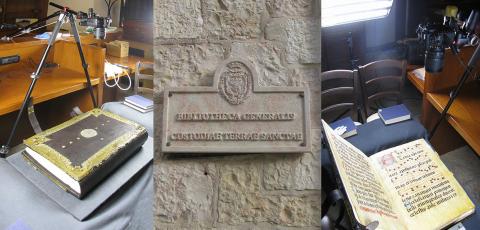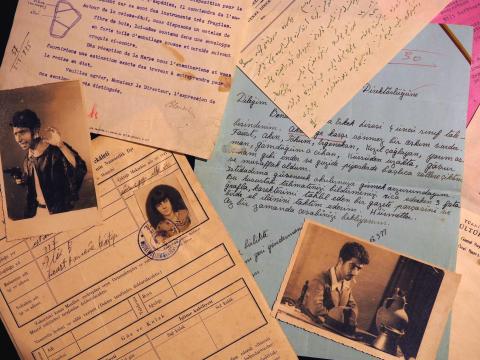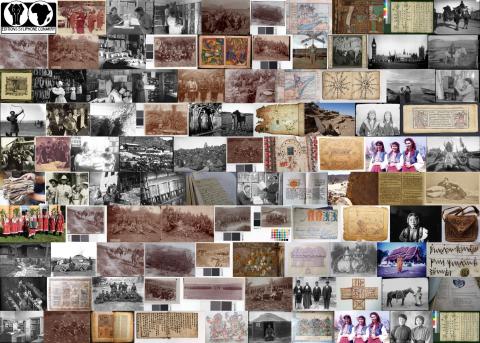Aims and objectives
The main goal of this project is to preserve the historical manuscript collection housed at the Al-aqsa Mosque Library in Jerusalem. The Al-aqsa Library located at the heart of the Old City of Jerusalem serves as a primary research center for Islamic studies and as a reference library for scholars and students from Jerusalem and other Palestinian cities. The library’s rare and most valuable collection consists of approximately 2000 manuscripts. The manuscripts were acquired by the Al-aqsa Library from prominent scholars, private collections, and from libraries in Palestine that have ceased to exist. The materials selected for this project represent 119 manuscript titles in the most immediate need of preservation.
Digitisation is planned primarily as a means of preservation in order to create high-quality archival digital copies of the original source materials that are at risk of deterioration. Environmental factors, wear and tear of manuscripts due to poor storage conditions, the lack of security at the library, and the unstable political situation in Jerusalem contribute to the sense of urgency and make digitisation of these unique manuscript materials a top priority.
The materials selected for digitisation include a collection of 119 rare manuscripts that span over several Islamic periods from the 12th to the 19th century AD, constituting approximately 33000 pages. The selection includes the manuscripts from the collections of well-known Palestinian scholars, such as Fayd Allah al-‘Alami and the Shaykh Khalil al-Khalidi and from the private collection of Shaykh Muhammad al-Khalili, who died in 1734. The latter collection was acquired by Al-aqsa Mosque Library in the 1970s. Prior to that, the collection was in the possession of the descendents of the shaykh and was moved frequently from place to place, which led to its considerable physical deterioration. The manuscripts selected for digitisation cover a wide range of subjects, including theology, Quran and its interpretation, Islamic law, Arabic language and literature, astronomy, medicine and history. The collection documents the history and cultural heritage of the region and its people.
The project will address the preservation challenges at the Al-aqsa Mosque Library by creating archival quality digital copies of the manuscripts and conserving the original source materials. Two sets of archival digital master files will be created as a result of this project – one set with be deposited with the Al-aqsa Mosque Library, the other with the British Library. Item-level descriptions for each manuscript will be produced in accordance with the British Library’s Endangered Archives Programme listing guidelines. In addition, the digitisation project intends to create multiple derivative copies to widen access to these rare materials to scholars, students, and the general public, and make the collection more visible and accessible. Creating derivative copies of these unique materials should further assist the library in the preservation efforts.
The digitisation project provides an opportunity to preserve these historical manuscripts and share them with a wider community of scholars and students. The selected manuscripts are particularly rare as they represent the only known copies of these unique titles. The project will help to preserve these historical materials for current and future scholars.
Outcomes
The project succeeded in creating high-quality digital archival copies of 119 rare manuscripts, consisting of 33,875 pages, from the holdings of the Al-aqsa Mosque Library. The digitisation process was conducted on the premises of the Al-aqsa Mosque Library. Manuscript pages were captured with two CANON cameras. The digital files in the RAW format, created as an immediate output of the image capture process, were then converted into uncompressed TIFF files. Each manuscript page is represented as a separate image and the TIFF files represent archival quality master copies.
The original materials posed several challenges to digitisation. The manuscript volumes were tightly bound, which made the photographing process extremely difficult. Many volumes showed signs of deterioration with damaged and torn pages.
Two copies of each digital master in the TIFF format were created for this project. The first set of archival TIFF files is stored on the dedicated external drive at the Al-aqsa Mosque Library. The second set was deposited at the British Library. Metadata was created at the collection, project, and individual manuscript level.
In an effort to publicise the project and raise awareness of the historical collection at the Al Aqsa Library, the project coordinator, Qasem Abu Harb, will present a paper about the project at the Ninth Islamic Manuscript Conference in Cambridge, UK in Sep 2013.
Read online the open access article: Digitisation of Islamic manuscripts and periodicals in Jerusalem and Acre, published in the EAP Anniversary publication From Dust to Digital. The article can also be downloaded as a PDF (985KB).
The records copied by this project have been catalogued as:
- EAP521/1 Al-Aqsa Mosque Library Collection of Historical Manuscripts [12th century-19th century]
Due to the cyber-attack on the British Library in October 2023, the archives and manuscripts database is currently inaccessible and we are unable to provide links to the catalogue records for this project.





